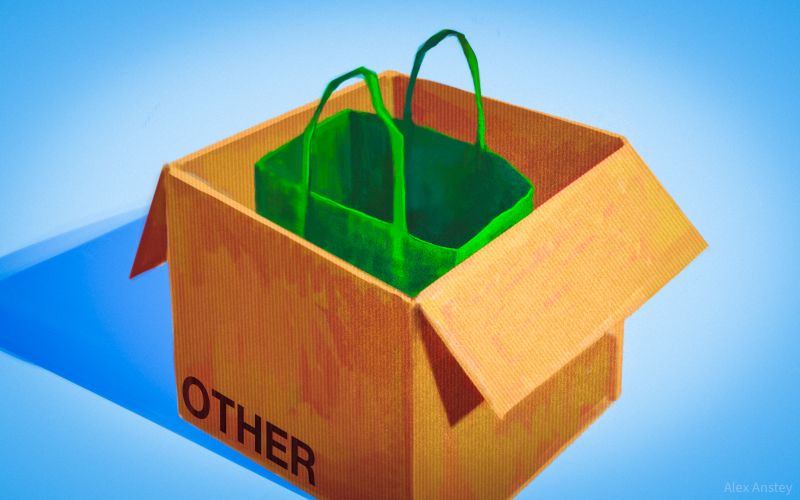Spooked by independents, Liberals are happy to turn the spotlight turn on their opponents on political donations. But when it comes to taking dirty money, they only need to examine their own house. Stephanie Tran reports.
This week, independent federal MP Zali Steggall came under media scrutiny over two issues relating to her successful campaign for the seat of Warringah at the 2019 election. Nine Newspapers singled out a year-old disclosure by the Australian Electoral Commission (AEC) that her campaign organisation had received a $100,000 donation from the family of a former director of a coal mining company.
Splashing their front pages with the Steggall “revelation”, while ignoring the gross and systemic disclosure breaches by the major parties, they followed with another year-old “revelation” that Alex Turnbull, son of former PM Malcolm Turnbull, had also breached disclosure rules.
Steggall and aligned Independents have campaigned hard on the need for an urgent transition to clean sources of energy. They have pledged to refuse donations from entities associated with the fossil fuel industry. The donor was the family trust of John Kinghorn, who had been a director of Cascade Coal.
Yet the canny Kinghorn was also founder of both the defunct Allco Finance Group and RAMS Home Loans. This is where he made his money. He is better known in investment circles for selling RAMS to the sharemarket in 2007 than for coal. The float went public just weeks before the meltdown in world credit markets and Kinghorn deposited a cool $650 million as RAMs shares tanked and sharemarket investors were left holding the baby.
He later made a killing in coal too, yet the Kinghorn link left Steggall fending off allegations of double standards.
Donation splitting
The donation in question consisted of eight pledges of $12,500 by members of the Kinghorn family. At the time, the disclosure threshold was $13,800. (It is now $14,500.) However, the Steggall campaign received a single cheque for $100,000, breaching Australian Electoral Commission regulations.
The AEC report highlighted by Nine Newspapers states:
Notwithstanding the donation consisted of eight individual pledges, one cheque of $100,000 was
given to Warringah Independent Ltd from The Kinghorn Family Trust. Under the Electoral Act, the
details of individual receipts exceeding the threshold must be disclosed in the annual disclosure
return.
On that second matter, the case highlights massive anomalies in the way the disclosure laws are observed. Donation splitting is a common technique used by the major political parties to avoid scrutiny and bypass the laws.
Hot on the heels of the Steggall revelations came reports of a $25,000 donation from Alex Turnbull to former Liberal MP turned independent, Julia Banks, during the 2019 election campaign.
The timing of these articles is interesting, coming so close to the election expected in May. The report into Warringah Independent Ltd was released in February 2021 and has been publicly available for almost a year. Similarly, the report into the $25,000 received by Peninsula Independent from Alex Turnbull was also released in February 2021.
The results of last week’s by-election in former NSW premier Gladys Berejiklian’s seat of Willoughby have clearly spooked the Liberals. Independent candidate Larissa Penn pulled off a stunning 19 per cent swing against the Liberal candidate Tim James. Evidently, the independent movement is posing a credible enough threat to the two-party system.
The elephants in the room
However, these revelations do point to the greater issue of loopholes that enable political parties to get away with failing to disclose donations. Research from the Centre for Public Integrity shows that $1.38 billion of political party funding has come from “unexplained origin” since the 1998-99 financial year. Over $68 million of political party funding in 2020-21 was of “unexplained origin”.
Further, analysis of last year’s data by Michael West Media showed 94% of private money which was paid to political parties was classified, not as donations, but as “other”.
The lack of transparency in political donation disclosures is undeniably a significant issue within Australian democracy, enabling political parties to obscure their benefactors. A brief look at the disclosures of the major political parties reveals a number of disclosure failures.
In the 2020-21 financial year, the Western Australia branch of the Labor Party received multiple donations totalling $35,000 from Northern Star Resources, a gold mining company with operations in Western Australia. None of these donations were disclosed in WA Labor’s annual political party return, including a $20,000 donation that falls above the 2020-21 disclosure threshold of $14,300.
The WA Labor Party did not provide a comment however, in a phone conversation they stated that the contributions were likely for event tickets and therefore did not need to be disclosed.
In the same year the WA Liberal Party received $20,000 from Northern Star Resources in two increments of $10,000. The WA Liberal Party did not disclose these donations however, this is completely legal as separately the donations fall below the disclosure threshold, highlighting a significant flaw in disclosure regulations that enables donations to slip under the radar.
The AEC does its best to correct disclosure failures through compliance reviews; however, the sheer scope of failures may mean that some breaches fall between the cracks.
In the lead up to the 2019 election Pratt Holdings made a $41,973 donation to the federal Liberal Party. Although the donation was well above the disclosure threshold, it was not disclosed by the Liberal Party.
The AEC conducted a compliance review into the Liberal Party’s disclosures for the 2018-19 financial year; however, this undisclosed donation was not included.
Why should we care?
An election will be called in the next 90 days so there’s no doubt that political donations are ramping up now.
Clive Palmer has already pledged to beat his own record $80 million spend in the upcoming election, having blitzed Labor at the 2019 poll.
While corporate donors will now be paying their political dues in droves, we won’t know the identities of the largest political payers until February 2023 due to the once-a-year donation disclosure regime.
Despite calls for real time donation disclosures and a reduction of the disclosure threshold, Australians are continuously kept in the dark about who is bankrolling the political parties.
And with distractions such as Zali Steggall’s failure to disclose the Kinghorn family donation dwarfing media coverage of the large systemic abuses by the major parties, don’t expect reform any time soon.
Stephanie is a journalist and has a law/journalism degree. She was a finalist for the 2021 Walkley Student Journalist of the Year Award and the winner of the 2021 Democracy's Watchdogs Award for Student Investigative Reporting.

